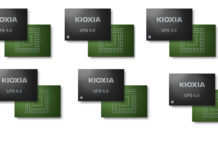VAST Data has updated its storage filer OS, claiming it is laying the foundation for a zero trust and “zero waste” infrastructure.
It appears to be homing in on the market for sustainable hyperscale data infrastructure with this latest release, which emphasizes data protection.
Jeff Denworth, co-founder and CMO at VAST Data, said: “A universal data platform that enables zero trust and slashes datacenters’ carbon footprints is critical in an era of cloud and web scale, and VAST is rising to the challenge of tomorrow’s infrastructure leaders.”
VAST Data OS with v4.4 and v4.5 updates includes:
- IPv6 support
- Audit records of storage admins and users
- Massive snapshot number increase to 100s of thousands
- NFSv4 Kerberos protocol encryption (krb5p)
- General availability of the previously-announced Ceres NVMe enclosure
- Data-aware compression
The increased snapshot numbers represent better, more granular protection against ransomware but don’t appear to affect zero trust approaches to data access. The audit records can be exported to security information and event management (SIEM) software, or an analytics engine for forensics and threat detection, to find events such as ransomware or rogue insider threats.
IPv6 supports approximately 340 trillion trillion trillion devices that can be attached to the internet via its 128-bit addressing scheme. This is a big advance on IPv4 with its 32-bit addressing supporting up to 4.3 billion devices. VAST says IPv6 is built with security in mind and, indeed, it has authentication and encryption support at the network layer, although these have to be actively used.
Audit records support user activity analysis but this is after user access and a zero trust approach means validating users and admins before access. The encryption will help with security in general.
Does a VAST Data SSD have infinite life? No, it will need to be replaced at some stage and so the zero waste idea is not literal. A VAST Data filer can be used to consolidate the capacity of many other filers, particularly disk-based and hybrid-disk/SSD filers. Their replacement lowers datacenter energy usage, but they have to be redeployed or recycled, in which case there is e-waste as not all of their components can be reused.
The Ceres enclosure draws less power than other drive enclosures and so supports sustainability goals but not e-waste goals. VAST says Ceres uses Nvidia BlueField DPUs and low-power ARM processors, making it “possible to build highly available flash storage enclosures without the need for power-hungry x86 processors.”
The data-aware compression can save VAST customers an additional 30 percent of storage capacity, so saving energy, reducing physical storage costs, and decreasing datacenter footprint. Again, good for sustainability but no relevance to zero waste.
Overall this is a nice incremental pair of updates, helping customers with their ESG reporting, but they only affect zero trust tangentially.








